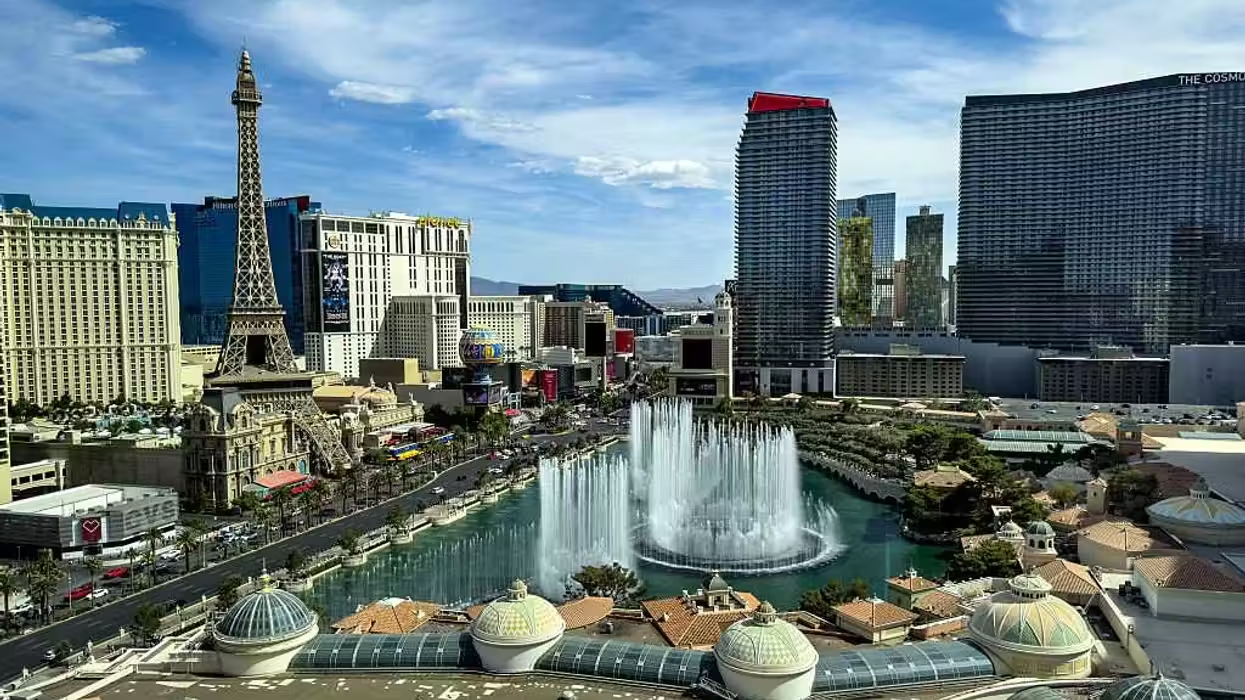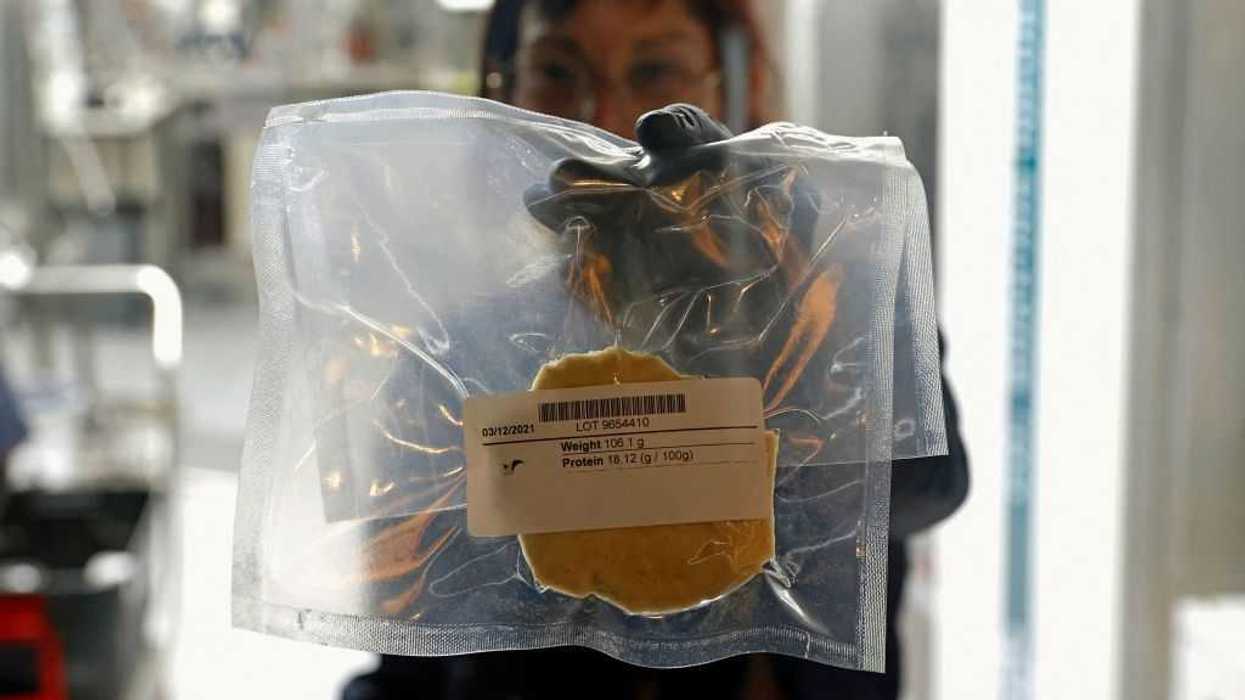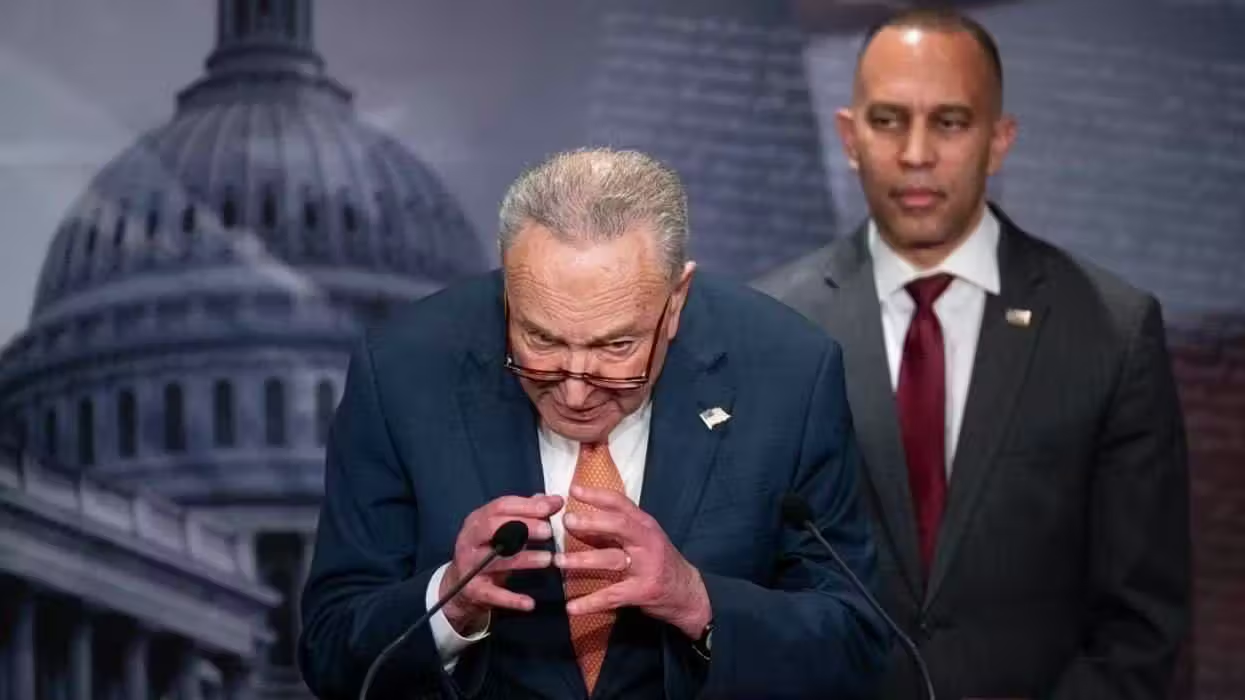
© 2026 Blaze Media LLC. All rights reserved.
Is Mitt Romney's Mormonism Becoming Less of an Issue in the 2012 Race?
January 13, 2012
"I’m afraid of his Mormon faith...It’s better than a Muslim.”

Is Mitt Romney's faith playing a role in his electoral prospects? This is a question that continues to be asked by media outlets and research firms even after the top-tier contender, a member of The Church of Jesus Christ of Latter-Day Saints, pulled off victories in both Iowa and New Hampshire. Despite these wins, media and leaders, alike, have continued to discuss the role, if any, that Mormonism has been playing in his performance thus far.
In a Jan. 8 op-ed in the Washington Post, Ken Starr, a former special prosecutor and the president of Baylor University (you may remember him from Bill Clinton investigations) admitted a question that is "privately" present in the minds of some voters. He wrote:
In the midst of lively public debates over taxes, jobs, the national debt and similarly important questions related to the future vitality of our nation, a different kind of question continues to privately occupy the minds of some prospective voters: Can I vote for a Mormon?
So, with this question in mind, one wonders how the electorate is responding as at least a faction of it ponders this important consideration. Starr's op-ed is one of many examples of Mormon-focused articles, incidents and proclamations that have occurred since the contender announced his candidacy.
As you may recall, Romney and Texas Gov. Rick Perry battled it out over anti-Mormon comments made by Pastor Robert Jeffress last fall. “Rick Perry’s a Christian. He’s an evangelical Christian, a follower of Jesus Christ," Jefrees said back in October. "Mitt Romney’s a good moral person, but he’s not a Christian. Mormonism is not Christianity, it has always been considered a cult by the mainstream of Christianity."
Following this drama, another minor scenario played out last month when Craig Bergman, a political director for Newt Gingrich's campaign, also made controversial comments about Romney's faith; he referred to it as the "cult of Mormon" and claimed that it would cost Republicans the election. Bergman inevitably left the campaign, although these statements were made before he joined.

Additionally, late last month, when Rev. Franklin Graham (the son of evangelist Billy) was asked if it would be okay for an evangelical Christian to vote for a Mormon. “Yes," he answered in an interview with CBN. "The fact that Mitt Romney‘s a Mormon doesn’t bother me. I think when we’re voting for president we need to get the person who is absolutely the most qualified."
Watch these comments, below:
Despite this support, Graham has also admitted the challenges he believes Romney will face. ''It's going to be difficult for Romney as a Mormon with the evangelical community," he said. "For most Christians, Mormonism is an issue and he has a hurdle here that he's going to have to jump over and navigate around if he can."
Pastor Steven Andrew of USA Christian Ministries called for Graham to retract his initial statements in support of Romney and urged him to repent. “Graham is misleading Christians to vote against Scripture for Mormon Mitt Romney,” Andrew responded. “God cannot bless us for betraying Jesus and voting for a non-Christian. No one comes to God except through Jesus — this includes the USA.”
And it doesn't end there. Last week, the Marietta Daily Journal covered startling comments last Wednesday from Iowa State Rep. Judy Manning. Manning, a Republican, was quoted as saying, "I’m afraid of his Mormon faith...It’s better than a Muslim.”

Later, Manning, who has backed Gingrich for president, took to Facebook to apologize, claiming that her words were "manipulated."
“I sincerely apologize to Mitt Romney and for offending people of Mormon faith," she wrote. Here's more from her apology:
I have made a terrible mistake with my reckless words. In an attempt to compare Romney and Obama, a seasoned reported manipulated my comparison using verbal judo and made my choice for a Republican Presidential candidate appear to be motivated by religion.NOT SO! I am supporting Newt Gingrich because he is the smartest, most qualified man for the job. I believe he is the only candidate that can turn this economy around. In the 2012 elections, I believe constituents should focus on the crucial issues plaguing our nation; Foreign Policy, Healthcare, the Economy and Education.
While I believe Newt Gingrich is the best choice for President, I can assure you, I will be supporting whomever wins the support of Republican America on the ballot in 2012...
These, of course, are merely examples and they aren't necessarily indicative of a larger bias against Mormons. At the least, they show that the issue, as Starr indicated, has been residing somewhere within the depths of some voters' minds. Over the past year, some poll numbers have also corroborated this notion.
Back in November, the Pew Research Center reported that white evangelical Protestants "are more inclined than the public as a whole to view Mormonism as a non-Christian faith." In fact, 47 percent of evangelical Christians surveyed said that they didn't view Mormonism as a part of Christianity.
Overall, Pew found that, while Romney's faith would potentially impact him in nabbing the nomination, it likely wouldn't play a major role in a general election.
To further delve into the Pew results, the organization also reported that Republicans who believe that Mormonism isn't a Christian faith are less likely to support Romney for the GOP nomination. Overall, they also have a less favorable view of him. That being said, they are prepared, nonetheless, to back him if he's running toe-to-toe against Obama. Pew continues:
...the same Republicans who may have doubts about Romney’s faith are among the most vehement opponents of Barack Obama. Fully 91% of white evangelical Republican voters say they would back Romney over Obama in a general election matchup, and 79% would support Romney strongly. Overall, white evangelicals would be among the strongest Romney supporters if he is the GOP nominee challenging Obama next fall.
On the bright side, only eight percent of Republican and GOP-leaning voters saw Romney's faith as a factor in whether they'd vote for him. Among evangelical Republicans, though, this proportion -- those saying that they would be less likely to vote for him because of his Mormonism -- was 15 percent. This, as Graham noted, is a reality that must be contended with in discussing this important issue.
A June 2011 Gallup poll found that around 20 percent of Republicans and independents wouldn't support a Mormon presidential candidate; the proportion was even higher -- 27 percent -- among Democrats.
Last week, Gallup followed this research up and published more recent data:
Given that Mormons constitute about 2% of American adults and 4% of Republicans nationally, the more important factor may be any possible effect that Romney's faith has on the vote of highly religious non-Mormons, a much larger voting bloc. The current data show that highly religious Protestants do give Romney slightly lower support than he gets among all Republicans, although the five-point difference is not huge.

RNS also recently wrote an article about Romney's lower support among this same subset of Christians which stated that "evangelicals remain reluctant to support him." “Evangelicals have come to regard the presidency as a spiritually potent office,” the article quoted Trinity College religion and politics expert Mark Silk as saying. “And the idea of electing someone who will use it on behalf of a religion they consider beyond the pale really bothers them," he continued.
David Kinnaman, president of the Barna Group, an organization that studies faith and culture, says that, in 2008, the more urban evangelical and the more coastal voters were, the less they saw Romney's faith as a barrier to voting for him. In terms of analyzing the recent Iowa caucuses, the Washington Post tackled this dynamic last week:
The most interesting poll data from the Iowa caucuses are these: Mitt Romney won in the cities. Rick Santorum won in the rural areas. In Iowa, where the vast majority of voters qualify as “white evangelicals,” these results can only mean one thing. Conservative Christians who reside in urban areas may have been taught in Sunday school that the Church of Jesus Christ of Latter-day Saints is a heretical sect, but they’re willing to look beyond those teachings and cast a vote for a Mormon who was once pro-choice. Their brothers and sisters who reside in the country are not. Since nearly 80 percent of Americans live in or near cities, that’s very good news for Romney.
Based on polls, news reports and anecdotal examples of leaders speaking negatively about Romney's faith, it seems there is some hesitation among a portion of evangelical Republicans. But this concern dissipates when GOP adherents consider a scenario in which Romney clinches the ticket. The some factor must be emphasized here, as the majority do not claim to see Mormonism as a barrier to voting for Romney.
In Starr's article, he encouraged voters to truly reflect upon a candidate's character and not merely his or her faith allegiance. "The litmus for our elected leaders must not be the church they attend but the Constitution they defend," he wrote. "Life experience, personal qualities and policy views are the pivotal points to guide Americans as they go to the polls in 2012."

Back in November, Richard J. Mouw, the president of Fuller Theological Seminary in Pasadena, California, echoed this sentiment, while debunking the notion that Mormonism is a "cult." He wrote:
Most scholars who study religious movements have long abandoned the use of the "cult" label with reference to Mormonism. With about 14 million adherents around the world, the church has moved into the religious mainstream. Mormons are outstanding business leaders, world-class academicians, novelists, authors of bestselling leadership manuals, influential members of Congress and much more. Not the kind of community we ordinarily associate with a cult. [...]We evangelicals should cast aside old suspicions and hostilities and listen carefully during this campaign. I believe we should make our voting decisions on the basis of what a Mormon candidate — or any candidate — actually has to say about the values and issues we all care about as citizens.
As the race continues, it's likely that this issue will continue to be discussed. But with evangelical leaders coming out in support of Romney and with understanding of the Mormon faith on the rise, this may very well dissipate as a factor worthy of deep discussion in the coming months. Interestingly, more than half of Mormons believe that America is ready for an LDS president.
At the moment, it's still something that continues to be discussed among evangelicals and faith voters, regardless of which side of the theological aisle they reside on.
Want to leave a tip?
We answer to you. Help keep our content free of advertisers and big tech censorship by leaving a tip today.
Want to join the conversation?
Already a subscriber?
Billy Hallowell is a digital TV host and interviewer for Faithwire and CBN News and the co-host of CBN’s "Quick Start Podcast."
Billy Hallowell
Billy Hallowell is a digital TV host and interviewer for Faithwire and CBN News and the co-host of CBN’s "Quick Start Podcast."
more stories
Sign up for the Blaze newsletter
By signing up, you agree to our Privacy Policy and Terms of Use, and agree to receive content that may sometimes include advertisements. You may opt out at any time.
Related Content
© 2026 Blaze Media LLC. All rights reserved.
Get the stories that matter most delivered directly to your inbox.
By signing up, you agree to our Privacy Policy and Terms of Use, and agree to receive content that may sometimes include advertisements. You may opt out at any time.






